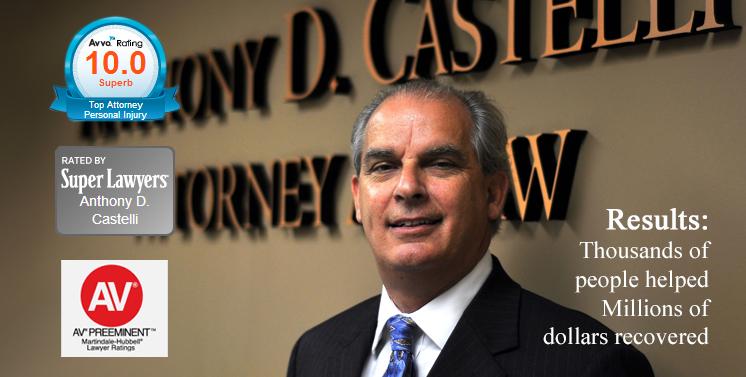Posted: June 17, 2019

I have been representing injury victims against insurance companies for the past 35 years. My office has handled hundreds, if not a few thousand, accident cases during this time.
I have found that most insurance adjustors are highly trained to pay you as little as possible, although most people would not think this. If you are seriously injured the smart adjustor will be very nice. They will come on as your friend, so that when they make a lowball offer you will mistakenly take it thinking its fair.
Most people understand that the insurance company’s job is to make money and that one way it does this is by settling claims for less than the claim is worth. Yet most people are unaware of how sophisticated, yet simple, the methods the carrier will utilize to help it accomplish this goal.
Here are some questions the insurance company will not want to answer and will tend to expose their true nature.
QUESTION 1: Can the insurance adjustor guarantee that the settlement amount being offered is fair?
ANSWER: It can’t but they may try to tell you it is. They can’t verify or prove it to you that individuals with similar injuries never receive more. In fact, why should they offer you top dollar when they know you are unrepresented and have no way to reject their offer and go forward.
Of course, you could try to handle your own case, but it’s often said, even if you are a lawyer, the person that represents themselves has a fool for a client. You would not try to do surgery on yourself, so why would you want to leave your right to recovery up to chance by attempting something you have no experience at.
Unless you are in the business of negotiating and settling injury claims, there is little chance you will know whether or not the settlement amount being offered is fair. Therefore, by negotiating and settling the claim yourself without using the assistance of a professional (a personal injury attorney) you run the risk of accepting a sum that may turn out to be much less than what is consider reasonable for your type of claim.
QUESTION 2: Isn’t it true that if I use an attorney in a serious case, I’m likely to recover more money in settlement than if I try to settle the claim on my own?
ANSWER: Don’t be surprised if the adjustor says “no” to this important question. How do I know that the answer may very well be false? There was a study by the Insurance Research Council (a nonprofit group funded by major insurance companies across the nation) titled “Injuries In Auto Accidents” (1999).
It found that the average total payout on claims that have an attorney is often greater than those claims where the injured victim settled on his or her own. They stated that Attorney represented claimants accounted for a disproportionately high amount of total claim dollars paid for most coverage categories.
In fact Allstate documents say that represented clients in many cases get 2 to 3 times the amount unrepresented clients get. The insurance companies know that if you have a serious injury and hire counsel you have a good chance of getting more money in settlement, even after deducting the lawyer’s fee.
QUESTION 3: Why do I have to give you a recorded statement when you can get information about the accident from the police report?
ANSWER: Because the insurance company will try to use your own statements against you! In most accidents a police report will be filed and the insurance company has easy access to this report (it just takes a written request and a small fee). So why is a recorded statement necessary?
Most companies have written policies in place which require the adjustor to get a recorded statement to see if there’s any information the accident victim might reveal which could be later used to either deny the claim or pay out less money when settlement occurs.
As to your own insurance company, you are contractually required to give them a statement. They will ask for it to be recorded and in some cases that may be required. So before you say something to hurt your case, consider consulting an experienced injury accident lawyer.
QUESTION 4: If I give you a recorded statement, can I then get a recorded statement from your own insured, i.e., the other driver?
ANSWER: No. This will never happen. It seems fair though doesn’t it? If you have to give a statement about the accident, then why can’t you also get a statement from the other driver?
QUESTION 5: Why do I have to give you an unrestricted medical authorization before I can settle the claim?
ANSWER: So the adjustor can look into your past medical history and find anything about your prior health which will help the company either deny your claim or pay out as little as possible. You can get your own records and send them in. But usually if you are not represented by counsel the carrier may not accept this. By using a lawyer, the lawyer prior to suit should only submit what’s pertinent.
QUESTION 6: Shouldn’t I wait to settle the claim until my medical treatment concludes, or until I’m sure that I have made a full recovery?
ANSWER: The insurance company knows that the quicker you settle the claim the less money it will have to pay out. Once you settle the claim you can’t reopen the case if it turns out your injuries are more severe or if you need more treatment as recommended by your doctor.
Most insurance companies have written directives in place to its claims department to settle every claim as quickly as possible so the accident victim can’t reopen the case later if the person’s condition gets worse. So it’s smart to wait to settle your claim so you know all of your injuries and what you are facing down the road.
QUESTION 7: If you are claiming that my medical treatment is unrelated or unnecessary what medical proof do you have?
ANSWER: They will probably say none. It’s just their opinion.
QUESTION 8: Will the insurance company write my doctor for a comprehensive report that details all my injuries, as well as my future injury effects and treatment needs.
ANSWER: Don’t count on it. They may send a form that asks for a few bits of information. Just ask them though and see how they respond.
Conclusion About Insurance Adjustors
Insurance adjustors are trained to pay you as little as possible. If you are seriously injured the best way to combat that is to hire a great personal injury attorney.


